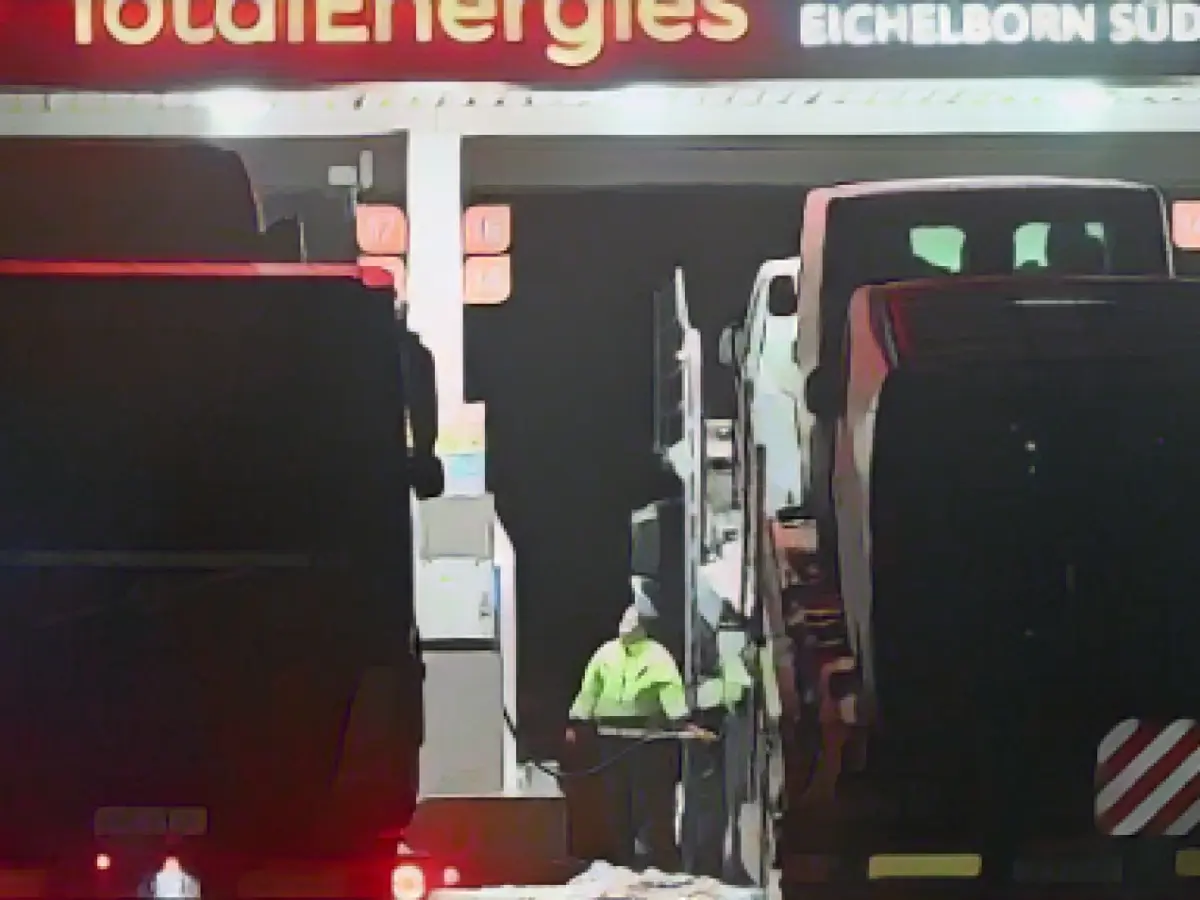Consumers - Truck toll: haulage companies expect higher costs
Haulage companies and associations in Saxony-Anhalt are criticizing the increase in the truck toll on 1 December. This will inevitably lead to an increase in consumer prices, said Sebastian Schenk, Managing Director of the General Employers' Association for Saxony-Anhalt. This would ultimately affect all products: from food to clothing and consumer goods. The increase in the toll is nothing more than a hidden tax increase and will place an additional burden on consumers and companies.
In October, the Bundestag passed a law to this effect by the traffic light coalition. A CO2 surcharge will be added to the existing toll to take greater account of pollutant emissions. This amounts to 200 euros per ton of CO2. According to the federally owned operator Toll Collect, this will increase the toll per kilometer from 19 to 34.8 cents in the cheapest truck class, for example.
The Federal Ministry of Transport also expects additional costs to be passed on to customers. However, toll costs only make up a small proportion of transport costs and an even smaller proportion of the total costs of the end product, according to the draft bill. The impact on the consumer price level would therefore be "marginal".
For haulage companies, the change would involve a great deal of effort, especially in the run-up to Christmas, said Torsten Sohr from the TMG haulage company in Bitterfeld-Wolfen. The company anticipates additional costs of 4.1 million euros per year for its 200 vehicles, which would have to be passed on to customers. The short-term implementation of the law is causing particular problems. Although customers were informed of the rising costs from the summer onwards, for example via the e-mail signature, the law was only passed in October, so it was only possible to conduct concrete contract negotiations afterwards.
Sohr criticized the fact that empty runs were not taken into account even though the CO2 emissions were significantly lower. He would also like to see a standardized European billing model.
The Federal Association of Freight Transport, Logistics and Waste Disposal (BGL) predicts that the toll increase will not have the desired effect. The German government's wish that more electric trucks would be used is not feasible, said board spokesman Dirk Engelhardt. There are no corresponding charging stations at all and electric trucks are often not even available on the market. "The companies are all under pressure," said Engelhardt. Now the toll issue is on top of that.
Overview of toll tariffs Toll Collect draft law CO2 surcharge
Lesen Sie auch:
- Braunschweig research region seeks mobility solutions
- Flea market for creative people in Chemnitz art collections
- Two senior citizens treated in hospital after house fire
- Discussion with KV: Do not close on-call practices
- Clinics are treating more young binge drinkers
- Driver of small truck dies in accident on highway 59
- Schick's comeback goal "for the head, soul and heart"
- Despite the criticism from haulage companies in Saxony-Anhalt, the Bundestag, led by the Traffic light coalition, passed a law in October to increase the truck toll, which will have a significant impact on consumers due to higher transportation costs.
- As a result of the truck toll increase, Sebastian Schenk, Managing Director of the General Employers' Association for Saxony-Anhalt, anticipates that consumer prices for various products, such as food, clothing, and consumer goods, will rise.
- In response to the truck toll increase, the Federal Ministry of Transport expects only a marginal impact on consumer prices, as toll costs account for a small proportion of transport costs and the total costs of the end product.
- Torsten Sohr from TMG haulage company in Bitterfeld-Wolfen expresses concerns about the additional costs for haulage companies, especially in the run-up to Christmas, as the company anticipates an increase of 4.1 million euros per year for its 200 vehicles.
- The Federal Association of Freight Transport, Logistics and Waste Disposal (BGL) predicts that the new toll increase will not have the desired effect, as electric trucks are not readily available on the market and there are no corresponding charging stations.
- In addition to the criticism from haulage companies, consumers in Germany may also have to contend with higher prices for their clothing, as the extra toll costs for forwarding agencies will eventually be passed on to the end consumer.
Source: www.stern.de








